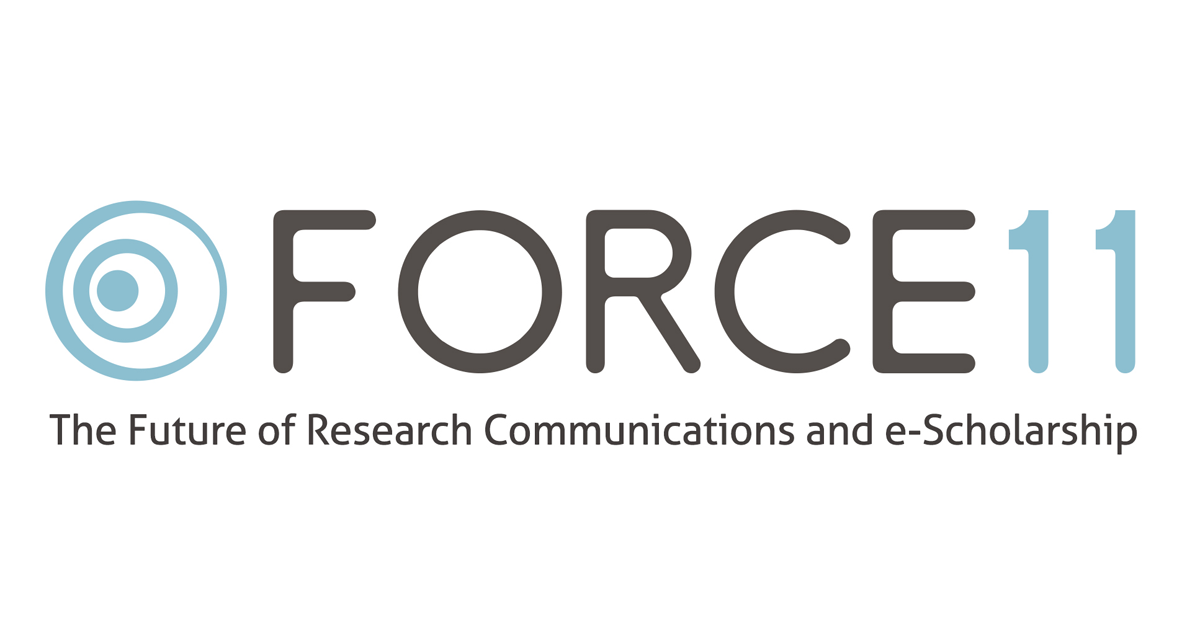The FORCE11 Scholarly Communications Institute to Launch at UC San Diego
By Tiffany Fox
San Diego, Calif., February 16, 2017 — FORCE11 (Future of Research Communications and E-Scholarship) — a global community of researchers, students, librarians, publishers, funders and scholars interested in the future of scholarship — is pleased to announce the launch of its new annual Force 11 Scholarly Communications Institute, which will take place at the University of California, San Diego (FSCI@UCSD) from July 30 through Aug. 4, 2017.
FSCI@UCSD is a week-long program that offers participants training, networking and skills development in new modes of research communication.
The UC San Diego Library is hosting the event at the Institute of the Americas on the UC San Diego campus.
“The research community lacks a forum for coordinated access to training, skills development, and expert knowledge on new modes of research communication,” says Cameron Neylon, President of Force 11, “even as funders are mandating change and the wider world has embraced new forms of communication.”
Based on proven models in other disciplines, FSCI@UCSD will bring world-leading experts in different aspects of scholarly communication to San Diego to design and deliver courses that will help participants to navigate this new world. Courses will be established for all levels, from absolute beginners to experts. They will also be aimed at different audiences, including students, researchers, administrators, funders, and information professionals, including librarians and publishers.
Typical topics to be covered at the annual event will include:
Introductory Level
- Open Access, Open Source, Open Data, What Does this All Mean?
- Building a Digital Presence: Social Media, Repositories, and the Researcher
- Research Communications 101: Tools for Improving Scholarly Communication
- Data and Other Forms of Non-narrative Publication
- Understanding Research Metrics
- Open Peer Review: How to give and Receive Criticism
Advanced
- Copyright, Open Access and Open Data
- New Metrics and How to Use Them to Build a Research Portfolio
- Introduction to Open Data Management
- Implications of OA on Research Publications
- Making it Work: Knowledge Mobilization, Knowledge Translation, and Popularization
Specialised/Topic-Focused
- Implementing Successful Open Access, and Open Data Mandates
- Supporting the Research Lifecycle for Researchers and Administrators
- Evaluating New Forms of Research Publication
- Implications of OA on Publication and Collection Building
- Data Ownership and Copyright Issues
- Data-informed Strategy for Institutional Leaders
- Maximizing Impact Across Disciplines
- Increasing Transparency and Reproducibility in Research Communications
“Scholarly Communication is in a disruptive phase at the moment. Students know the rules that governed their supervisors’ early careers are changing” said Maryann Martone, past president of Force 11 and UC San Diego professor emerita. “Libraries know the current publishing and data repository system is unsustainable; researchers know the systems within which they have worked are changing rapidly,” adds Brian Schottlaender, UC San Diego’s Audrey Geisel University Librarian. “Administrators know government, industry, funders, and the general public are expecting research to be performed, communicated, and measured in new ways. But knowing that things are changing is not the same as understanding what those changes are or how individuals and institutions can navigate them. This is what FSCI@UCSD will provide.”
For more information or to sign up to receive further information about the FSCI@UCSD, visit www.force11.org/fsci.
ABOUT FORCE11
FORCE11 is a non-profit organization with 2000+ individual researchers, students, librarians, publishers, funding officers and support service providers from around the globe focused on defining the future of scholarship. The members of FORCE11 are leaders who are working together to make positive changes in scholarly communication and will bring expertise to the FSCI by providing a rich set of courses dealing with today’s challenges in research communication. Some of the work that has been launched by the community through the FORCE11 includes:
- FAIR Principles
- Joint Declaration of Data Citation Principle (JDDCP)
- RRIDs (Research Resource Identifiers)
- Software Citation Principles
- Data Citation Principles Pilot Project
- Annotating All Knowledge Coalition
About UC San Diego
UC San Diego has an international reputation as a leader in research communication, built on a long history of providing world-leading data repositories. As stated in its Strategic Plan, UC San Diego was founded as an experimental university, designed to be the future of education and research in a public university. Its mission is to “transform California and a diverse global society by educating, generating and disseminating knowledge and creative works, and engaging in public service”; this depends on the effective communication of research and teaching. With its focus on inclusion, diversity and excellence, UC San Diego will be building on a tradition of leadership in the advancement of research communications.
Comment on Location
Given the uncertainty regarding travel to the US and the recent FORCE11 Statement on travel restrictions, there may be questions regarding the location of the Institute in San Diego. The Institute has been in planning with UC San Diego for some time and UC San Diego has committed to providing long-term and substantial financial, administrative, and intellectual support. This support allows us to focus our fundraising on supporting travel for those who who would otherwise be unable to attend, which has been a feature of our work in planning FORCE11 meetings for some years. While the current situation makes this harder, we elected to move forward with the planned location. We remain committed to working to mitigate the effects of restrictions to travel across the full set of FORCE11 events.
Media Contacts
Tiffany Fox
(858) 246-0353
tfox@ucsd.edu
Related Links

